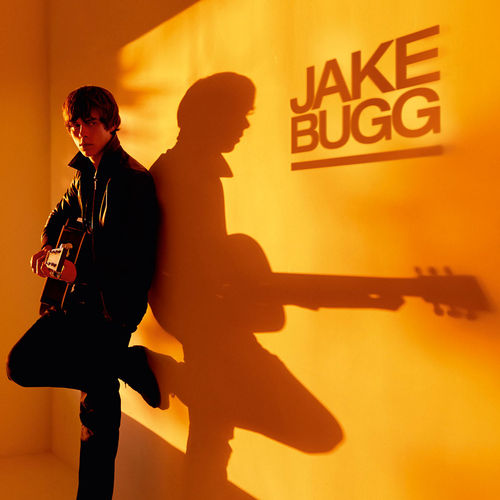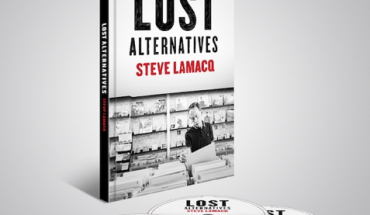Even by modern standards, Jake Bugg has really rocketed to fame. From being a plucky ‘one to watch’ (albeit one signed to a major label), when his single “Lightning Bolt” coincided with the 2012 Olympics and soundtracked Usain Bolt’s every appearance on our screens, he is now a household name. His self-titled debut album, when he was just 18, introduced an authentic and refreshing new voice; a dry wit and broad Nottingham accent combining with an attention-grabbing, cut-glass vocal delivery and bona fide skills and intuition as a guitarist. He cited influences including Don McLean, Johnny Cash and Neil Young, and on the basis of the raw materials displayed in his confidently stripped back sound, he seemed the first young solo star in a while to hold any real hope of one day emulating their success and artistic status. There was a feeling that he hadn’t quite arrived fully formed, but that that was fine, good even: time and life experience would fill in the depth and nuance sometimes lacking in his lyrics.
And so, the emergence of his second album, ‘Shangri La’, just 13 months on from his debut, feels disconcertingly soon. Sure, he has come a long way, as evidenced by the fact the album is produced by Rick Rubin and named after the luminary’s Malibu studio. And if, during a year of relentless touring, festivals and publicity, Bugg has found the time to do all that aforementioned developing and maturing and acquiring of nuance, then fair play; but it seems unlikely.
‘There’s A Beast And We All Feed It’ opens the album, clocking in at under two minutes and kicking off proceedings in an energetic style that we’ll call ‘mockabilly’; it doesn’t sound like there is anything new happening here, but it is happening very fast, as if to compensate. ‘Slumville Sunrise’ motors along, the pleasingly thumping rhythm section alongside Bugg’s wry commentary calling to mind the Arctic Monkeys, and with a soaring, unshakable chorus it is certainly a standout – still enjoyable despite having been hammered on the radio as the current single. However, ‘What Doesn’t Kill You’, which was the lead single back in September, takes that lovely catchiness and uses it for ill. The chorus embeds itself into the cranium, but it makes a very unwelcome guest thanks to an infuriatingly unoriginal lyrical concept hanging on a hash of well worn clichés, sadly doing a disservice to the more appealing and inventive lines that are there in the verses if you can bear to listen out for them. Gripes aside though, Bugg rattles through the first three songs at such a frenetic pace that it is a pretty fun ride.
‘Me And You’ brings the first hint of a softer side, with a shuffling, folksy lilt, and it is a perfectly lovely ditty; the mid-tempo indie of ‘Messed Up Kids’ returns to Bugg’s trademark theme of gritty hometown observations, strengthening suspicions that maybe he has been too rushed to reflect and put pen to paper about his new experiences, or that perhaps this album is constructed of old songs he had left in the bank from his last one, duly beefed up and Rick Rubin-ised for public consumption. ‘A Song About Love’ is pleasant of melody and certainly a showcase for Bugg’s voice, but slightly self-conscious; the loose and bluesy ‘All Your Reasons’ starts promisingly but morphs into some sort of homage to every middle-of-the-road Britpop album track from the ’90s, eventually drowning in extended guitar breaks that never quite build up the head of steam they need to justify themselves. Perhaps the girl who wrote a feature on Vice recently about living as if it was 1996 for a week, as though nobody had ever managed to do it, let alone a mere 17 years ago, would find this sound fresh and relevant. But if Bugg’s sights are set on the credibility and longevity of his heroes then he’s strayed off course. ‘Kingpin’, an exercise in rock ‘n’ roll-by-numbers, feels so lame and derivative, and frankly beneath his talents, as to be wholly inexplicable. Which brings to mind the main frustration with this record: it is clearly well made and features some high grade musicians, but it sounds as if very few of the actual songs here really needed an audience, and rather that the label needed an album.
‘Kitchen Table’ comes to the rescue with fresh new array of delicate guitar and keyboard sounds, Bugg’s simple vocal style placing the song centre stage where it shines. ‘Pine trees’ finds him with just his guitar for company; a welcome development in theory, but some of the hoped-for raw charm is lost in a smooth and schmaltzy melody (the opening line of which is unfortunately reminiscent of Oleta Adams’, ahem, classic “Get Here (If You Can)”).
‘Simple Pleasures’ dives back into Britpop territory, which threatens to pay off this time as it grows into a pulsating, chugging beast of a tune; however, it is tethered by a slightly wimpy predictability, a feeling that it’s just obvious how it is going to end. Thankfully, the same cannot be said of the album as a whole, as the closing track, ‘Storm Passes Away’, finally shows Bugg’s true charms, a bluegrass-tinged country folk number in which his playful vocal turn sounds free and unforced, and as such is a breath of fresh air.
Here is the Jake Bugg that we were promised, and it is a relief, because for much of ‘Shangri La’ Bugg’s appeal, his natural talent and charisma, is hidden in plain sight; distinctive vocals and impressive guitar work sit high up in the mix, but somehow failing to cut through and expose the essence of the artist.
2.5/5





